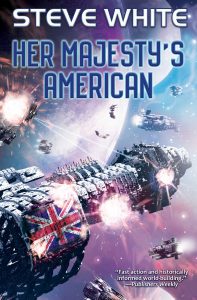 Her Majesty's American by Steve White
Her Majesty's American by Steve White Published by Baen on 4 September 2018
Genres: Type III - Soft
Pages: 240
Format: eBook
Source: Purchased
Buy on Amazon
Goodreads

Premise – Point of Divergence (POD)
1689 - William III and Queen Mary of England unexpectedly produce a male heir (Maurice I)
1775 - First American Revolution
1778 - A reapprochement is reached between the English Crown and the rebels.The Story
In an alternate future where the British empire never crumbled, the space ships of Her Majesty’s Navy work to keep the spaceways safe. Commander Robert Rogers of the Royal Space Navy is a defense intelligence officer known for his unconventional ways. Rogers is American born-and-raised, a loyal citizen of the Viceroyalty of North America. He’s a descendant of the founder of the highly effective, pro-British Rogers’ Rangers during the Colonial unpleasantries of 1776, and he’s inherited his ancestor’s intelligence and drive in spades.
But there are those among the stars who are not so happy being subjects of the British Empire. In the Tau Ceti system, a cauldron of trouble brews as a terrorist faction of the rebellious Sons of Arnold attacks the empire from within, and warships of the theocratic Caliphate enters the system, prepared to do their worse to destroy the hated empire head on. Yet standing against the coming anarchy and tyranny is one intrepid spy prepared to risk all for queen and empire.
The Review
I bought the book based on the fact that it was billed as an all-new alternate history science fiction from <i>New York Times </i>best-selling author Steve White. Great, I thought, a book from someone who knows how to write – how wrong I was!
Steve White has written this book, while demonstrating all the skills of a first time author, and this is not a good thing. The characters are flat, the chief two villains particularly. But so too is Grey, the female double agent who eventually wins Rogers’ heart (Rogers being the book’s hero). Of course she’s pretty, and naive, but there is never any explanation why she is so stupid.
And Grey is not the only stupid one. Rogers is one of the Royal Navies top investigators and yet he fails to keep his contact at the embassy of his discoveries, and then he gets captured twice. The information he has is both vital, and time critical to the security of the Empire. I mean,seriously, he gets hit by a sonic stunner, and thinks “Idiot!”, then pretty much does the same thing all over again later! Personally, the only hope I have is that he is seriously reamed out on his return, unfortunately I suspect he’ll get away with it as a result of his embellishments/lies in his reports.
But getting back to Mr White’s elementary writing mistakes: he actually uses the phrase “As you undoubtedly know,” when he has one character (De Graeff) launching into providing some back story to Rogers. This is lazy writing, and even lazier editing — if Rogers already knows, why should De Graeff have to waste time telling him.
Perhaps Mr White was so impressed with his own cleverness and the back-history he had created, that he failed to remember that he still had to tell a good story. Frankly, I have no idea what book the reviewers from <i>Booklist</i> and <i>Publishers Weekly</i>) (the reviews quoted on the Amazon site) were reading but it certainly wasn’t the same one I’m reviewing.
I will admit that my opinion may have been skewed as I had just finished reading Corner-Bryant and Price’s On Editing, so unless you’re in the mood for flat characters, stupid heroes, and a writer who seems to have ditched whatever writing ability they had before starting this book give this one a miss. Having said that, I did actually finish the book, so it does get one star, rather than than the 1/2 it might otherwise demand.

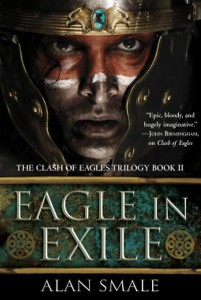 Eagle in Exile by
Eagle in Exile by 
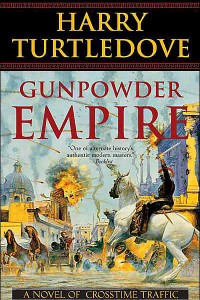 Gunpowder Empire by
Gunpowder Empire by 
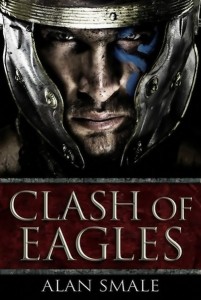 A Clash of Eagles by
A Clash of Eagles by 
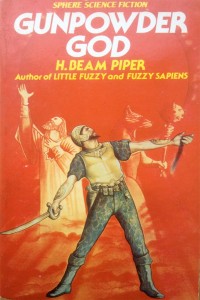 Gunpoweder God by
Gunpoweder God by 